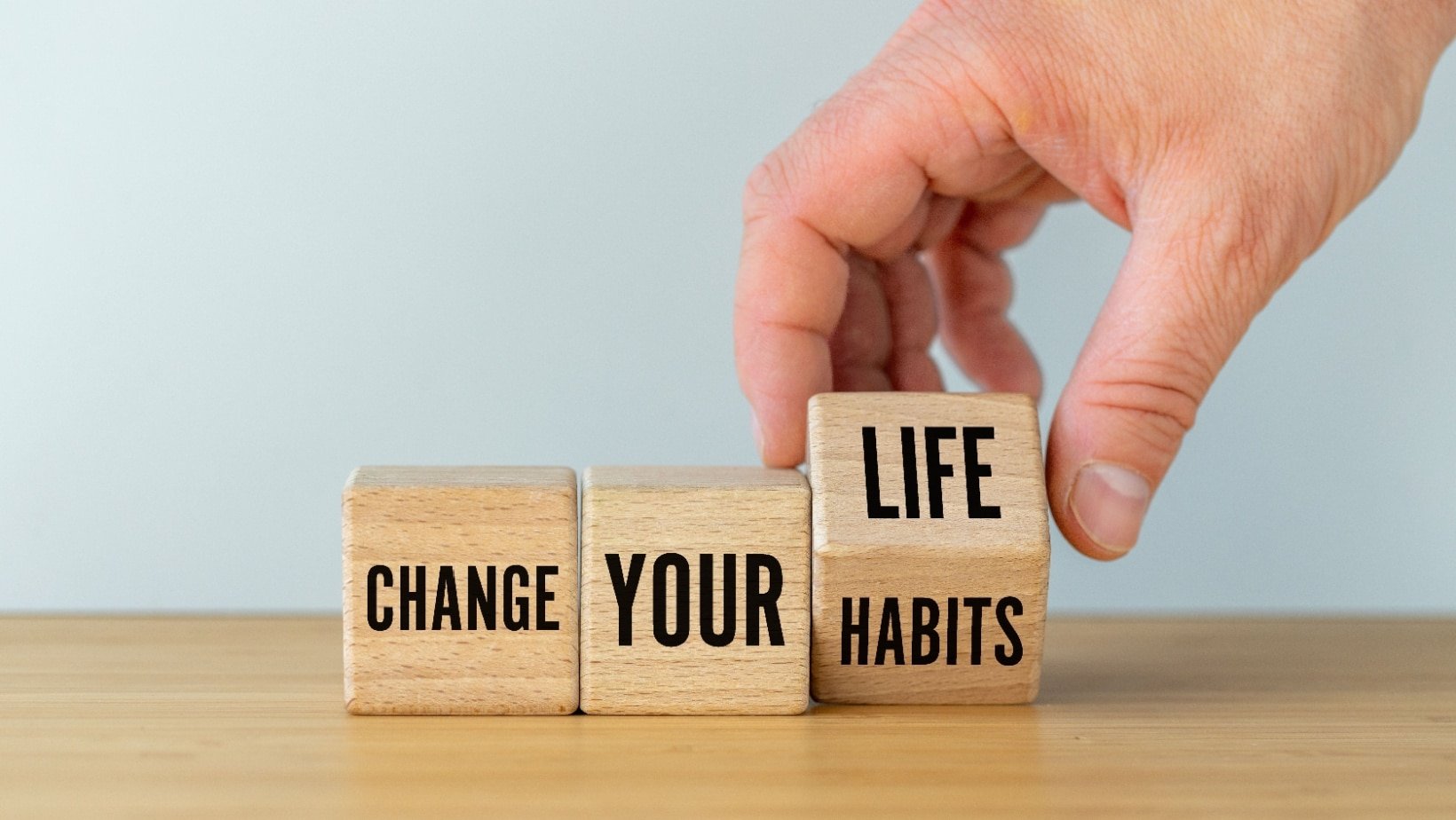What’s the secret to a long, happy marriage? Is it grand romantic gestures, expensive vacations, daily “I love you’s,” or that Hermès Birkin Faubourg tropical bag you’ve been hoodwinked into buying a third time? Apparently not, since according to the American Psychological Association, roughly 40-50% of marriages in the U.S. still end in divorce.
Harvard relationship experts (many of whom have been happily married for several decades) say the answer isn’t about what couples do but rather what they don’t.
After countless studies, therapy sessions, and, yes, personal marital experience, these experts have pinpointed 12 habits that happy couples consistently avoid.
Don’t Criticize Personality, Only Behaviors

That, often-uncalled-for, “You’re so selfish” clapback burns deep, doesn’t it? Dr. John Gottman, one of the leading researchers cited by Harvard experts, calls criticism of personality one of the “Four Horsemen” of relationship doom.
Instead, focus on specific actions. For example, “I felt unseen when you didn’t ask about my day” is far more constructive than ripping someone’s character apart. By addressing specific behaviors, you open the door for understanding, not defensiveness.
Dr. John Gottman’s research, often cited by Harvard experts, reveals that couples who maintain a “magic ratio” of 5 positive interactions for every 1 negative interaction are far more likely to thrive in their relationships.
Don’t Show Contempt

We’ve all had moments of frustration, but a well-timed eye roll or sarcastic “Yeah, right” can do more damage than you think. Contempt is the number one predictor of divorce, according to these experts.
Instead, happy couples practice showing admiration and respect—even in tough times. A sincere “I appreciate how hard you’ve been working” can help build an emotional buffer for those inevitable moments of tension.
Pro Insight: Replace contempt with curiosity. Ask your partner why they feel the way they do instead of assuming or dismissing their perspective.
Don’t Be Defensive

Defensiveness often sneaks into conversations disguised as self-protection. You know the drill. Partner A says, “You forgot to take the trash out again.” Partner B replies, “Oh yeah? Well, you never help with the dishes!” Boom. The blame game begins.
Instead, take a deep breath and own it. A simple “You’re right. I’ll take care of it now,” shows accountability and disarms potential conflict.
“The happiest and most successful couples know how to speak to each other with kindness, love, and consideration,” say Drs. Olds and Schwartz, Harvard Medical School professors.
Don’t Stonewall (Emotionally Withdraw)

When arguments get too heated, it’s tempting to shut down. But “stonewalling,” or emotionally withdrawing, sends a clear (and damaging) message that you’re no longer willing to engage.
Nearly 50% of couples report emotional withdrawal as a significant issue in their relationship, according to a survey by the American Psychological Association.
Happy couples stay present—even when conversations get uncomfortable. They pause, take breaks if needed, and revisit tough topics when emotions settle.
Don’t Make Assumptions About Each Other

Many people believe they can read their partner’s mind after a few years together. You can’t.
“The longer you’re together, the stronger your assumptions are that you know everything about your partner,” says Dr. Richard S. Schwartz of Harvard Medical School. “You lose your curiosity and your wish to explore.”
Assumptions such as “If you loved me, you should know what I like” or “If you loved me, I wouldn’t have to tell you” should be avoided, the speakers warned.
For example, instead of assuming your partner doesn’t care when they forget to call, try asking, “Hey, what made you forget? Everything okay?”
Don’t Neglect Friendship

Sure, passion is great, but do you like your partner as a person? “The goal of your marriage is not passion, it’s friendship. This is the goal, you must be close friends, ideally best friends, with your spouse,” Arthur Brooks said during his appearance on The Drive podcast. Without it, everything else crumbles.
Happy couples genuinely enjoy each other’s company. They laugh together, celebrate wins, and lean on each other during difficult times.
Food for Thought: When was the last time you and your partner had pure, silly fun together? If it’s been a while, plan a game night or take a class together.
Don’t Stop Having Fun Together

Fun is often the first casualty when life gets busy. But couples who prioritize shared laughter and new experiences tend to stick together.
“Don’t put fun aside and deal only with the business of life,” says Holly Parker, a psychologist who lectures at Harvard. “Fun is linked to a lifetime of passionate, romantic love.” Happy couples grow together, try new activities, and keep their relationship exciting.
Small Action Step: Plan a surprise mini-adventure for your partner. Even a simple picnic at a nearby park can rekindle that spark.
Don’t Blame the Other Person for All Problems

Conflict is inevitable, but blame only makes things worse. Happy couples understand that problems often have two sides.
“People usually get stuck feeling like the problem is 100% their spouse’s,” writes psychologist Wyatt Fisher, Ph.D.
Fisher reminds couples to ask this question during fights: “How could my actions be contributing to this issue?” By taking responsibility, you create an atmosphere of collaboration rather than combat.
Don’t Ignore Each Other’s Needs

Your partner isn’t a mind reader (seriously, they’re not). And yet, many couples fall into the trap of expecting their significant other to just know what they need.
Marc Bachrach, a renowned therapist, encourages couples to vocalize their needs clearly. It is your partner’s responsibility to support and assist you in meeting your needs, not to read your mind or figure them out.
Try This Today: Tell your partner one specific thing they could do to make you feel loved. Then, invite them to do the same.
Don’t Let Children Be the Only Bond

When kids become the center of a marriage, couples risk losing touch with each other. Harvard’s Arthur Brooks warns that this dynamic often leads to feelings of isolation when the nest eventually empties.
“There’s got to be something bigger than ‘Did you change his diaper?’ because that’s not going to be in common forever and you’re going to be lonely in your relationship,” he muses.
Instead, prioritize your relationship outside of parenting. Schedule regular date nights or pursue hobbies you both enjoy.
Insight: A strong relationship between parents creates a more stable, happy environment for children, too.
Don’t Lose a Sense of Humor

Laughter truly is the best medicine (and glue) for marriages. Couples who laugh together create a buffer against stress and conflict.
Take it from Judith and Herman Chernoff, married for over 73 years (!), who joke that humor is “why she’s still putting up with me.”
Herman, a 97-year-old professor emeritus at Harvard’s Department of Statistics, jokingly said about his 96-year-old spouse, “I was struggling to divorce her for many years, but she refused to let me do that.”
Your Turn: Watch a comedy special or revisit an old favorite sitcom with your partner tonight. Bonus points for cracking inside jokes along the way.
Don’t Stop Communicating Through Conflict

Conflict doesn’t have to be a bad thing. What sets happy couples apart is how they fight. Instead of yelling or shutting down, they engage in constructive conversations.
“You can’t stay together that long without learning to communicate through conflict,” say Drs. Olds and Schwartz married for nearly 50 years. They recommend stating feelings clearly, listening fully, and working toward solutions collaboratively.
Actionable Advice: Next time a disagreement arises, try this phrase to diffuse tension: “I don’t want us to fight. Can we sit down and figure this out together?”
Building a Happier, Healthier Relationship

No relationship is perfect, but implementing positive habits (and dropping the toxic ones) can make your marriage stronger, happier, and more fulfilling.
Which of these “don’ts” resonates most with you? Start there. Even small changes can have a big impact over time. Here’s to lifelong love and laughter.
Disclaimer – This list is solely the author’s opinion based on research and publicly available information. It is not intended to be professional advice.
Don’t Swipe Until You Read This: The 7 Best Credit Cards for 2025 Ranked by Rewards

The 7 Best Credit Cards for 2025 Ranked by Rewards
There’s this moment that sticks with me—standing at a checkout line, swiping my old card like I always did, and thinking, “Wait… why am I not getting anything back for this?” I wasn’t traveling on points. I wasn’t getting cash back. I was just spending. Sound familiar?
Look, the truth is, credit cards can work for you—if you choose the right one. And in 2025, you’ve got some seriously rewarding options that can actually boost your bank account. From travel lovers to grocery haulers, there’s something for everyone.
Let’s break down the best credit cards out there this year—the ones that actually give back.
5 Easy Steps to Change Any Habit

5 Easy Steps to Change Any Habit
We all click on them with the hope that just THIS time the secret to changing a bad habit or adopting a healthy one will be revealed and we’ll finally be able to stick to that diet, stop that one or ten things that might in the moment make us feel temporarily good but really just make us fat, unhealthy, sad, mad or just frustrated with ourselves.
Well… this isn’t one of those articles. I don’t have 5 easy steps to help you change your habits….





